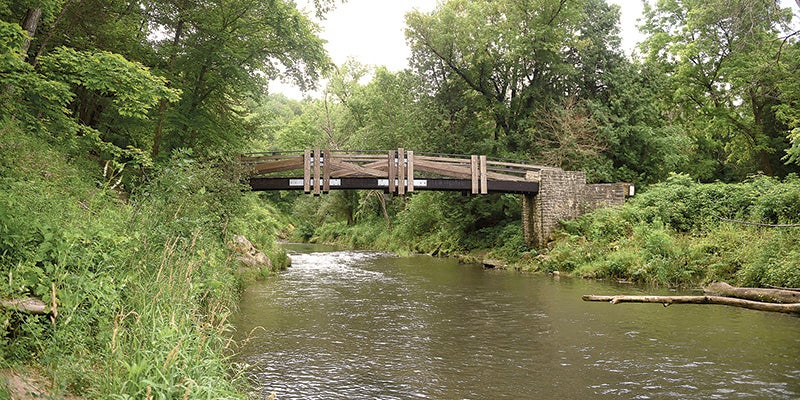House-Senate bargainers begin quest for border security deal
Published 7:50 am Thursday, January 31, 2019
WASHINGTON — Democrats offered to boost border security spending and leaders of both sides flashed signs of flexibility as congressional talks began Wednesday aimed at resolving the standoff with President Donald Trump that sparked the just-ended 35-day partial government shutdown.
In opening remarks, each party made clear that Trump’s demand for taxpayer financing for his proposed Southwest border wall remained the toughest obstacle to resolve. Underscoring that, Trump tweeted that lawmakers were “Wasting their time!” if they aren’t considering money for a wall.
Trump has demanded $5.7 billion for his proposed wall at the U.S.-Mexico border, but Congress has rejected his plan under opposition from Democrats and the White House stands in a position of weakness in the talks. Lacking the votes to prevail, Trump has begun referring to his proposal as a “physical barrier.”
“Smart border security is not overly reliant on physical barriers,” House Appropriations Committee Chairwoman Nita Lowey, D-N.Y., said as the session began. She said the Trump administration “has failed to demonstrate” that physical barriers “are cost effective compared to better technology and more personnel.”
The comments at once served notice that Democrats weren’t ruling out financing physical structures but would do so only on a limited basis.
Lowey said Democrats “will expand on” the $1.6 billion they’d proposed earlier for border security programs. Rep. Lucille Roybal-Allard, D-Calif., another negotiator, said her party’s proposal would include money to hire additional customs officers and immigration judges, improve scanning at border ports of entry and provide humanitarian assistance for migrants.
Sen. Richard Shelby, R-Ala., who chairs the Senate Appropriations Committee, said that while Republicans favor improved border security technology, “Smart technology alone does not actually stop anyone from crossing into the U.S. illegally.”
Shelby said physical barriers are needed “not from coast to coast, but strategically placed where traffic is highest.” That echoed recent remarks by Trump as he’s retreated from his more strident comments from the 2016 presidential campaign.
The president surrendered last Friday and agreed to reopen government for three weeks so negotiators can seek a border security deal, but with no commitments for wall funds. If negotiations on the 17-member panel falter, one option would be to enact another temporary funding measure to replace the current one, which expires Feb. 15.
Trump tweeted Wednesday morning, hours before the negotiators were to sit down for their first meeting, that the group of Republicans and Democrats is “Wasting their time!” if they aren’t “discussing or contemplating a Wall or Physical Barrier.”
“He tweets and all you guys do is spend your whole day following up on his tweets,” said House Majority Leader Steny Hoyer, D-Md. “In any event, our answer is the same. We’re in negotiations. These I think are going to be good faith negotiations. And we want to reach an agreement. We want to make sure the government doesn’t shut down again.”
For their part, GOP leaders want to de-escalate the battle over the border wall and suggest they too could be flexible as bargainers seek a bipartisan agreement.
Senate Majority Leader Mitch McConnell, R-Ky., who pressured Trump last week to end the shutdown, warned the president against triggering another shutdown or declaring a national emergency on the Southwest boundary, a move that could let him redirect budget funds to building segments of the wall.



